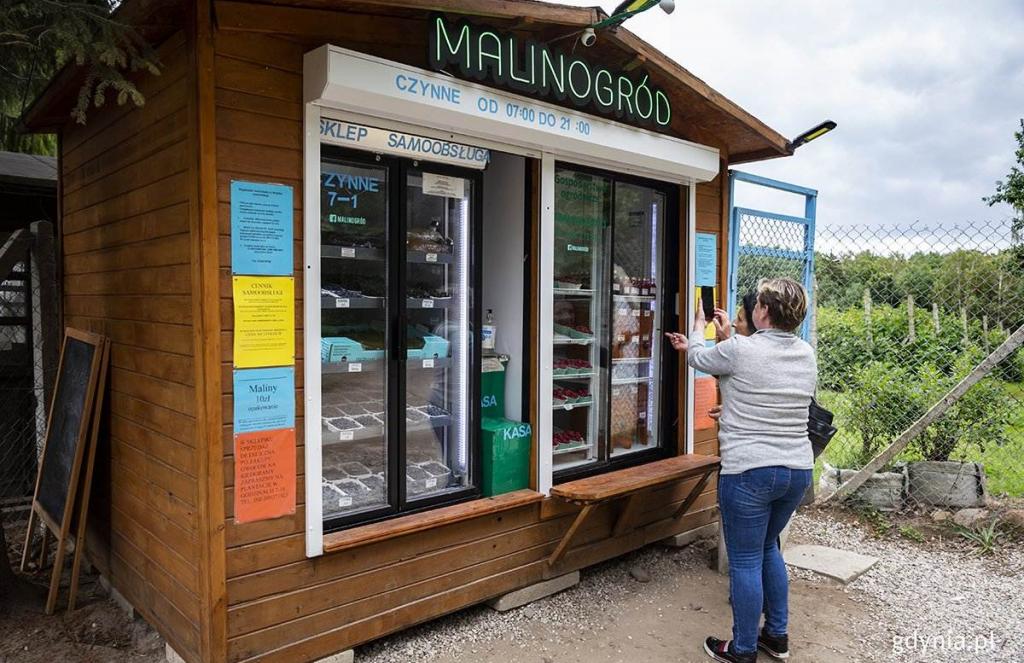Thessaloniki gets ready for its metro launch in November
The underground rapid transit lines have been under construction for almost two decades due to various project delays
 TheMayor.EU logo
TheMayor.EU logo 
This shop is entirely self-service and it is up to the customer's self-consciousness to pay the due amount, Source: City of Gdynia
Not only does it make profits, but it also corrects delinquent behaviour
Imagine a shop that relies completely on the honesty of its customers: no sellers, no cashiers, no cameras. Just products, prices, and clients – a fair deal, in an ideal society.
How many people do you think will pay for the goods consumed? Turns out – everyone, at least as far as this small venture, attached to a horticultural farm near the Polish city of Gdynia, is concerned.
As the city website of Gdynia reports, the farm owner - Daniel Wojtyński – has been running the experiment for over a year now and is pretty confident with the positive results of his business, but also about local society's values. As he explains, the shop works with a very simple, yet modern system, based on trust and a minimum need for human resources.
In particular, the owner spends his time on his horticultural farm in Mały Kack (near Gdynia). As a result of the agricultural work, he has a lot of fresh produce to sell on the spot.
The business obliges him to sell in larger quantities which means that he has practically no time to spend dealing with low-volume deals.
That is why, last July, he opened a self-service shop not far from the family farm. There, he offers a variety of local produce, issued from Malinogród (a garden of raspberries), puts a price on them and expects customers to be honest enough to pay the respective amount for the products of their choice.
The concept Wojtyński borrowed from a trip to Scandinavia and brought it to Poland – a country with relatively low social trust rates, compared to those of Norway and Sweden. Yet, he was positive that honest commercial interactions can find fertile ground in his town.
So, he put up two fridges and filled them with ripe raspberries, blackberries, blueberries and juice. He then placed prices and a cash bin for everyone to insert the requested amount (it is also possible to pay by bank or card).
Despite some initial mishaps, Wojtyński is convinced that the self-service shop is a success. Indeed, during the first couple of months from the opening, there were several thefts (including of an entire refrigerator, which caused him to lock the machine after all) and even an attempt to open the cash register. However, gradually, these incidents faded away.
What is more, he even managed to turn former offenders into employees, by giving them work on his farm and observing how they adopted socially responsive behaviour. All of this while saving significant amounts of time to work on his farm and offering passing hikers and cyclists a fresh snack and convenient way to get it.
Now, the farmer considers expanding the products on offer, as his shop is open all year round. If you happen to be in the vicinity of Gdynia, make sure to drop by at 19, Spółdzielcza street (in the forest between Orłów and Wielki Kacek). Fresh goods are available from 7.00 to 21.00.

The underground rapid transit lines have been under construction for almost two decades due to various project delays

Now you can get your wine in Talence by paying directly in Bitcoin

That’s because the state has to spend money on updating the railway infrastructure rather than subsidizing the cost of the popular pass

Rethinking renewable energy sources for the urban landscape

The examples, compiled by Beyond Fossil Fuels, can inform and inspire communities and entrepreneurs that still feel trepidation at the prospect of energy transition

Now you can get your wine in Talence by paying directly in Bitcoin

The 10th European Conference on Sustainable Cities and Towns (ESCT) sets the stage for stronger cooperation between the EU, national and local level to fast track Europe's transition to climate neutrality.

At least, that’s the promise made by the mayor of Paris, Anne Hidalgo

The underground rapid transit lines have been under construction for almost two decades due to various project delays

At least, that’s the promise made by the mayor of Paris, Anne Hidalgo

Hostal de Pinós is located in the geographical centre of the autonomous region

Despite its church-y name, the district has long been known as the hangout spot for the artsy crowds

Urban dwellers across the EU are having a say in making their surroundings friendlier to people and the environment.

Forests in the EU can help green the European construction industry and bolster a continent-wide push for architectural improvements.

Apply by 10 November and do your part for the transformation of European public spaces

An interview with the Mayor of a Polish city that seeks to reinvent itself

An interview with the newly elected ICLEI President and Mayor of Malmö

A conversation with the Mayor of Lisbon about the spirit and dimensions of innovation present in the Portuguese capital














